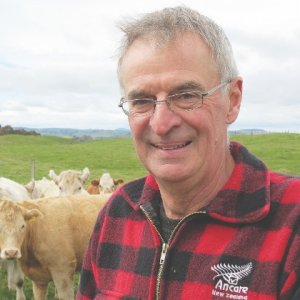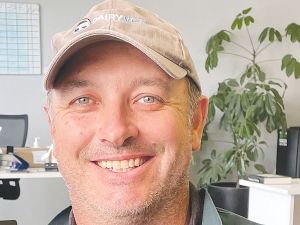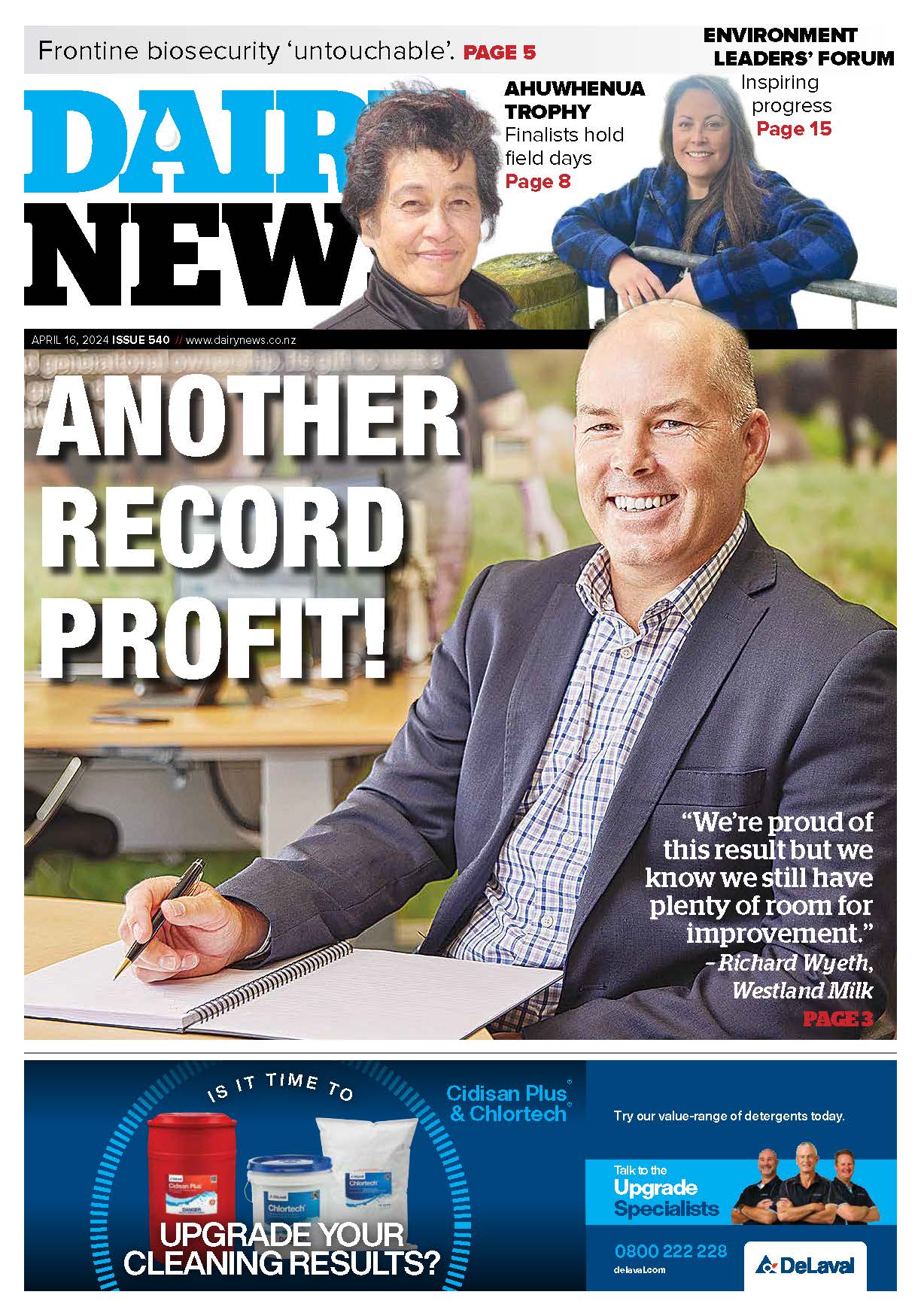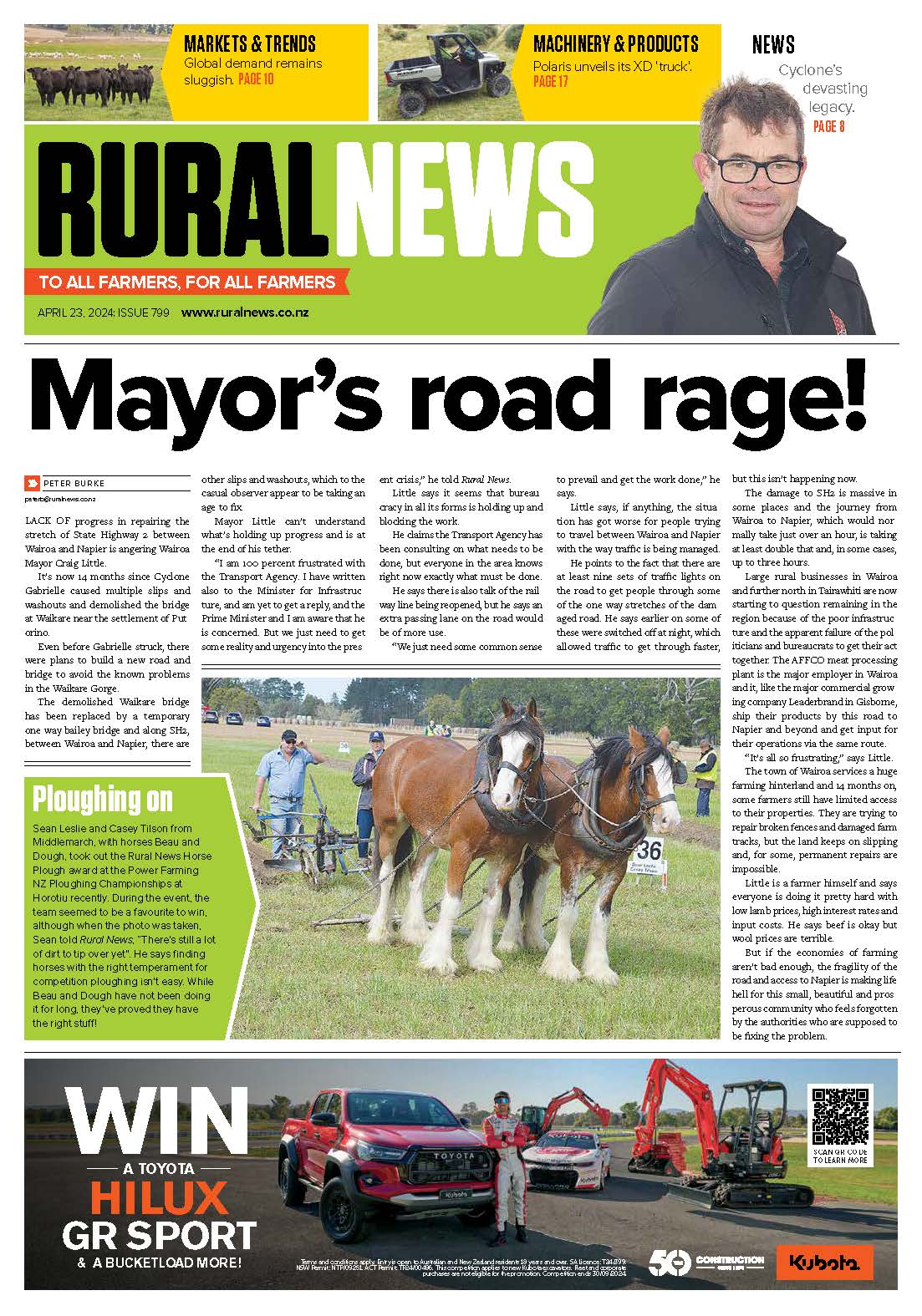It took over a decade to come into effect but similar limits loom in the Manawatu/Wanganui region and what’s happened in Taupo is “coming to all of you soon,” he warns.
As someone who’s been through the process, he questions the way farmers are reacting elsewhere, given the changes are designed to improve water quality.
“Too many farmers are stuck in the space where they keep saying that farming doesn’t damage waterways. This seems to be their strategic response,” he says.
In the early stages of Variation 5, farmers were all talking about protecting property rights.
“But property rights assigned to title don’t give you the right to pollute a downstream property, so that argument just doesn’t hold water.”
Barton’s interest in farming goes back to his early teens when he went hunting with his father. He became involved in deer farming, then worked in the tertiary education sector for more than twenty-five years. But the love of land was always there and while having a corporate day job he bought rough blocks of country and developed them.
“I would fence them, clear them, and sell them to buy a larger block. That was how I accrued the equity to go farming.
“This is the third farm I’ve owned. I didn’t access family money or anything like that. I never really made a significant cash surplus on any of those blocks of land, but I made capital gain each time.”
In 2004 he bought his present 148ha (118ha effective) ex-ballot farm. His original business plan was to finish 300 prime cattle a year.
“I understood the Variation 5 legislation and made a conscious decision to purchase. I think I was the only person to buy farmland in about a four year period in the catchment just because everyone was gun-shy of Variation 5.”
Barton admits he wavered between thinking he’d done the right thing and “My god, what an idiot!”
“At times the legislation looked frighteningly difficult. At one point they were talking about consents for five years. Well, you’d never get a bank loan on a property that had a consent for five years so in due course we won the right for 25-year consents.”
Once on the farm, he immediately became deeply involved in the Variation 5 consultation process.
“I have always believed that if you are going to be affected by something you need to get involved boots and all otherwise it will get done to you.”
Barton joined Taupo Lake Care (TLC), which was set up in 2000 when Variation 5 was first mooted. It was an incorporated society representing 95% of both private and Maori authority owners in the catchment. The organisation has, for 12 years, managed to keep the vast majority of landowners in the catchment ‘singing from the same song sheet’. TLC negotiated with Environment Waikato (EW) despite the fact that at times they were poles apart. Barton was elected chairman in 2006.
“What this did was to consume me and I lived and breathed it. When the Environment Court sat to hear appeals in 2007, I devoted 155 days where I was off the farm and involved in the process.
“There were a number of other farmers similarly committed. We were fortunate to have such a strong team.”
A small group of “early adopters” had accepted variation 5 was going to happen and had resolved to make the best of it; a group in the middle of the bell curve were waiting to see what happened; and there was, and is, a tail that would and will never accept it.
“There are still people in the catchment who think that we did the wrong thing [but] hopefully the bulk of people will agree that history will show that what we achieved here was the best deal as we could have got.”
Barton says there were times when it was extremely difficult and stressful, given the responsibility he had negotiating a deal that he knew would have an impact on the lives of others. He wrote and got approval from TLC members for the submission he prepared for the Environment Court.
He says he always knew the devil of Variation 5 would be in the detail and while farmers never questioned the need for a nitrogen cap, they felt many of the proposals put up by EW were unworkable. TLC hung in and negotiated its way through the process to get a deal.
“We were increasingly being confronted with science that we either had to accept or reject, and much of it was not carried out in the catchment under our soil type or climate. We argued successfully for a considerable amount of research to be done in the catchment.”
However, even today, the science around water quality for diffuse sources of pollution is uncertain. What TLC eventually signed to was a means of protecting Lake Taupo.
Barton believes the farmers of the catchment have made huge personal sacrifices for the greater good of all New Zealanders. In contrast, the government who created the problem by developing the land in the 1970s abdicated its responsibilities. “Seventeen years after selling farmers the balloted farms, they were saying to them: ‘you are polluters – you will need to go’.”
His message to farmers throughout the country is clear: “Look at what happened in Taupo; get together in catchment groups; deeply understand the issues, the science, and the regional economic impact. You need to work together and support each other.”

















